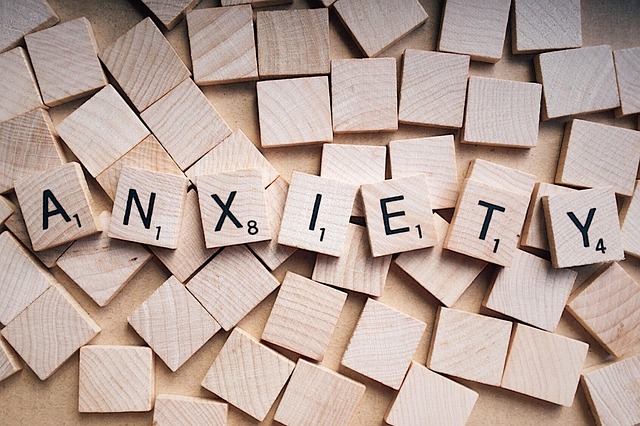Mental wellness is a crucial aspect of first responders' health, as they often face high-stress situations and trauma. Organizations like Parker First Responders Therapy prioritize mental wellness through structured self-care routines, community outreach programs, and tailored support for stress management, emotional healing, and conflict resolution. By proactively managing stressors, first responders can build resilience, improve well-being, and achieve a healthier work-life balance, preventing burnout and enhancing their ability to provide trauma support services. Integrating mental wellness practices, regular exercise, mindfulness, and clear boundaries is essential for the resilience of both individuals and organizations supporting them, with Parker First Responders Therapy as a key example.
“In the demanding role of Parker First Responders, maintaining mental wellness is paramount. This article explores the intricate balance between resilience and self-care, offering guidance tailored to these heroes. We delve into understanding mental wellness, recognizing unique stressors in their line of work, and crafting personalized routines.
From identifying triggers specific to first responders to integrating therapy practices into their busy schedules, discover strategies to enhance mental health. Empower yourself with knowledge on how to navigate the challenges of this profession while fostering resilience through effective self-care.”
- Understanding Mental Wellness and Self-Care for First Responders
- Identifying Personal Stressors and Triggers Specific to First Responder Roles
- Crafting a Customized Self-Care Routine for Optimal Mental Health
- Integrating Self-Care Practices into the Demanding Life of a Parker First Responder
Understanding Mental Wellness and Self-Care for First Responders

Mental wellness is a vital aspect of an individual’s overall health, especially for first responders who frequently face high-stress situations and trauma. It involves maintaining emotional balance, resilience, and coping mechanisms to navigate through challenging circumstances. For first responders like those at Parker First Responders Therapy, understanding and prioritizing mental wellness is not just a personal choice but a necessity.
The unique nature of their work exposes them to profound psychological stressors, making it crucial to implement effective self-care routines. This includes engaging in activities that promote relaxation, stress reduction, and emotional processing. A well-structured self-care regimen can enhance their ability to provide trauma support services within the community and ensure better risk management planning for mental health professionals. Through community outreach program implementation, these responders can access specialized therapy and build supportive networks, ultimately fostering a healthier and more resilient mindset.
Identifying Personal Stressors and Triggers Specific to First Responder Roles

First responders often face unique challenges that can lead to significant stress and potential mental health issues. Identifying personal stressors and triggers specific to their roles is a crucial step in developing an effective self-care routine. These may include exposure to traumatic events, high-stress work environments, and the constant need to be on guard. For instance, firefighters not only deal with physical hazards but also witness scenes that can cause emotional distress. Policemen and paramedics often experience similar situations, requiring them to manage not just physical demands but also the psychological weight of their duties.
The Parker First Responders Therapy program recognizes these challenges and offers specialized support tailored to the unique needs of first responders. Through stress management workshops, communication strategies, and emotional healing processes, this initiative aims to equip individuals with tools to navigate the difficult emotions that can arise from their roles. By addressing these stressors proactively, first responders can foster resilience, enhance their well-being, and maintain a healthier work-life balance.
Crafting a Customized Self-Care Routine for Optimal Mental Health

Crafting a Customized Self-Care Routine for Optimal Mental Health starts with understanding your unique needs and preferences. Just as Parker First Responders Therapy tailors its services to individual clients, your self-care routine should be equally personalized. This involves reflecting on your lifestyle, stress triggers, and emotional responses. By taking inventory of these factors, you can identify activities that promote Emotional Regulation and Conflict Resolution Techniques, which are key components in Crisis Intervention Guidance.
For instance, if you’re someone who thrives on structure, setting aside dedicated time for exercise or meditation each day may be beneficial. Conversely, if creative outlets help you process emotions, incorporating painting, writing, or music into your routine could be transformative. The goal is to create a self-care regimen that feels sustainable and supportive, one that actively contributes to your overall mental wellness rather than merely offering temporary relief.
Integrating Self-Care Practices into the Demanding Life of a Parker First Responder

The demanding nature of being a Parker First Responder often leaves little room for self-care and mental wellness practices. However, integrating these routines is crucial for maintaining resilience and preventing burnout. In the high-stress environment of emergency services, Parker First Responders can benefit from incorporating therapy sessions into their schedules as a key component of their self-care routine. These sessions provide an outlet to process traumatic events, develop coping skills, and receive support tailored to their unique experiences.
Beyond individual therapy, implementing burnout prevention strategies such as regular exercise, mindfulness practices, and setting clear boundaries between work and personal life can significantly enhance mental wellness. Considering the challenges faced by healthcare providers, incorporating these practices into their daily routines is vital for maintaining optimal mental health. Moreover, risk management planning for mental health professionals should prioritize self-care initiatives to ensure they can effectively support others while safeguarding their own well-being.
For Parker First Responders, prioritizing mental wellness through self-care routines is not just beneficial; it’s essential. By understanding their unique stressors and crafting personalized practices, they can effectively navigate the demanding nature of their roles. Integrating activities like mindfulness, exercise, and therapy into daily life can significantly enhance resilience and overall well-being. Embracing these strategies ensures that Parker First Responders can continue to serve with compassion and strength, knowing they have the tools to maintain a healthy mind in the face of adversity.














